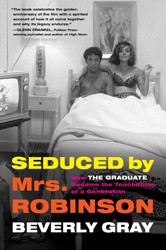Soon after coming to power in early 1933, Hitler and his cohorts moved swiftly to take total control of the German film industry and use the powerful techniques of cinema to deify themselves and demonize their enemies. The three books under consideration here explore how they went about this process.
Michael Munn’s book takes a singular approach, arguing that Hitler was motivated not by a desire to gain political power or advance a particular ideology, but by an insatiable craving for fame. Munn sees Hitler as a man desperate to compensate for profound sexual inadequacies by transforming himself into an object of cult worship, the prototypical Germanic hero in a Wagnerian epic of his own making. Rather than being dismayed when the end came, Hitler welcomed it as a glorious Goetterdammerung.
While this view has much to recommend it — there is no question that Hitler was a deeply disturbed megalomaniac — Munn’s breezy narrative style may leave some readers with an empty feeling. Was Hitler really indifferent in his ideological choices?
The books by Thomas Doherty and Ben Urwand tackle a more subtle effort by the Nazis to use popular culture to burnish their image and consolidate their power, namely, the attempts by the German government during the 1930s to exercise control over how the American film industry portrayed Germany, and especially the Nazis.
The story of how Hollywood studios allowed themselves to be manipulated by the Germans is certainly a shameful chapter in the history of American cinema. During the 1930s, Germany was a lucrative market for American films. As a result, the Nazis could, and did, exploit significant economic leverage over Hollywood: Any studio that portrayed Germany or the new regime in an unflattering light ran the risk of having all its films banned from being shown in Germany in perpetuity.
The Nazis wielded this leverage through both formal and informal contacts with representatives of the various studios and with the Breen office, which enforced the industry-wide Production Code. Rather than run the risk of having finished films banned out-of-hand, studios submitted scripts of films slated for production to Georg Gyssling, the head of the German consulate in Los Angeles, who often requested (and got) changes before shooting began.
As its title suggests, Urwand’s book is by far the more provocative of the two, argued with the intensity of someone who feels he is exposing an earth-shaking scandal. But did the arrangement between Hollywood and the German regime really amount to active “collaboration,” an explicit “pact” between Hollywood and Hitler?
Hollywood and Hitler suggests that Urwand seriously overstates his case. While ranging into such fascinating issues as Hollywood’s odd decision to lionize Benito Mussolini’s son Vittorio in 1937, its fierce rejection of Leni Riefenstahl a year later, and the structure and history of the newsreel business, Doherty provides a more sober appraisal of the relationship between Hollywood and the Nazis. What emerges is not a portrait of a sinister pact of collaboration, but an all too familiar story of how economic forces can knock our moral compasses off-center. While it is appropriate to regard that relationship as morally noxious, its effects were in no way comparable to handing over Jews to be deported and murdered.
First, not all of Hollywood succumbed to the Nazis’ threats. In fact, only three of the major studios — Paramount, MGM, and Twentieth Century-Fox — altered content to suit the Germans. The others — especially Warner Brothers, which refused to do business in Germany at all after the advent of Hitler — steered clear of the practice.
Nor was the German government the only source of pressure on Hollywood to soft-pedal criticism of Germany and the Nazi regime. The studios had to contend with a wide range of interested parties, from censorship boards in municipalities with sizable German-American populations to American Jewish groups concerned that anti-Nazi films would provoke Hitler to take increasingly violent reprisals against the Jews who remained in Germany.
In light of the diversity of its target markets, Hollywood was unlikely to have made films with any political content at all during the 1930s, even in the absence of external pressure. Political films were inherently controversial, and controversy could be bad for business. Unlike Germany, where all popular culture was appropriated as an instrument of political power by the regime, America allowed show business to operate as a business, and those in charge tended to agree with George S. Kaufman’s dictum that “satire is what closes on Saturday night.”
And even the studios that did acquiesce to the arrangement with the Nazis had their limits. After Kristallnacht in November 1938 made the Nazis’ violent intentions toward the Jews tangible to the world at large, Hollywood’s interest in placating Hitler’s regime cooled considerably, and anti-Nazi melodramas began to churn through the production pipeline.
Additional Titles Featured in Review
Related Content:
- Cinema Judaica: The War Years, 1939 – 1949 by Ken Sutak
- 1939 Into The Dark by Paula Phelan
- Hatemail: Anti-Semitism on Picture Postcards by Salo Aizenberg





